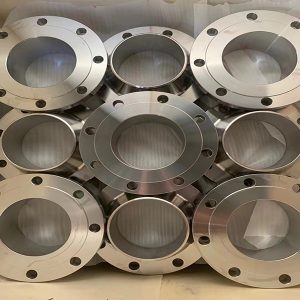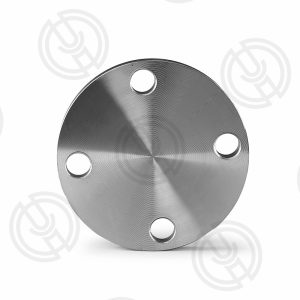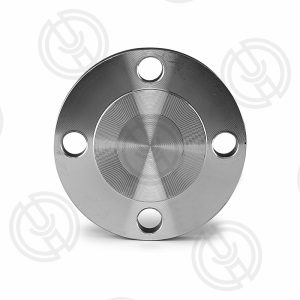ASTM A182 F55 flange is a high-performance alloy steel flange widely used in the fields of petroleum, chemical, and offshore engineering. Yield strength is a key indicator to measure the transition of material from the elastic phase to the plastic phase under stress. This article will discuss the yield strength of ASTM A182 F55 flange, analyzing the factors affecting yield strength, testing methods, and its importance in practical applications.

Material Composition and Yield Strength:
ASTM A182 F55 flange material is primarily composed of alloying elements such as chromium, nickel, molybdenum, and copper. The impact of these alloying elements on yield strength is as follows:
1.Chromium: Chromium improves the material’s corrosion resistance and oxidation resistance, and forms chromium carbides, which help to increase yield strength.
2.Nickel: Nickel enhances the material’s toughness and ductility, allowing for better deformation capabilities under stress, thus affecting yield strength.
3.Molybdenum: Molybdenum increases the material’s strength and hardness, contributing to the yield strength.
4.Copper: Copper improves the material’s corrosion resistance and also contributes to the yield strength.
Factors Affecting Yield Strength:
1.Heat Treatment: The heat treatment process significantly influences the yield strength of ASTM A182 F55 flanges. An appropriate heat treatment process can achieve the desired yield strength.
2.Microstructure: Grain size, phase composition, and the distribution of alloying elements in the microstructure have a significant impact on yield strength.
3.Impurities: Impurity elements such as sulfur and phosphorus can reduce the yield strength of the material.
4.Surface Condition: Surface defects like cracks and pits can lead to stress concentration, decreasing yield strength.
Testing Methods for Yield Strength:
The yield strength of ASTM A182 F55 flanges is typically tested using a universal testing machine. The testing steps are as follows:
1.Sample Preparation: Cut a sample that meets the requirements from the flange, and polish it to ensure a smooth surface.
2.Test Setup: Install the sample on the universal testing machine and adjust the fixture to apply a uniform tensile force.
3.Test Execution: Gradually apply tensile force to the sample and record the force and elongation at the yield point.
4.Data Analysis: Calculate the yield strength based on the test data.

Test Results and Analysis:
ASTM A182 F55 flanges exhibit high yield strength in laboratory tests. The typical yield strength range is 550-690 MPa. The following is an analysis of the test results:
1.High Yield Strength: F55 flanges have a high yield strength, suitable for applications with significant mechanical stress.
2.Ductility: The material maintains good plasticity after the yield point, which is beneficial for processing and use.
3.Consistency: The yield strength of different samples shows minimal variation, indicating stable material quality.
Significance of Yield Strength in Practical Applications:
1.Safety: Higher yield strength ensures that ASTM A182 F55 flanges are less prone to plastic deformation under stress, reducing the risk of failure.
2.Reliability: Flanges with high yield strength have better pressure-bearing capabilities in practical applications, enhancing the reliability of pipeline systems.
3.Design Optimization: Understanding the yield strength of F55 flanges helps engineers optimize structures and reduce costs in design.

Conclusion:
ASTM A182 F55 flanges have high yield strength, making them suitable for various demanding conditions. Mastering the yield strength of F55 flanges is crucial for ensuring the safety, reliability, and optimized design of pipeline systems. Through reasonable heat treatment processes and strict quality control, the yield strength advantages of ASTM A182 F55 flanges can be fully utilized, providing strong support for the development of China’s petroleum, chemical, and offshore engineering fields.
Hebei Yanshan Enfei Pipeline Technology Co., Ltd., established in 2019, specializes in the production of special material forgings such as ASTM A182 F55 flanges. The company is certified by the Norwegian national petroleum standard NORSOK M-650, demonstrating the high quality and reliability of its products in the offshore and natural gas industries. Enfei Pipeline Technology’s product range includes a variety of corrosion-resistant and high-performance pipeline components, meeting the demanding needs of industrial applications in severe environments.
